What Happens if You Don’t Eat Enough Fat on Keto?
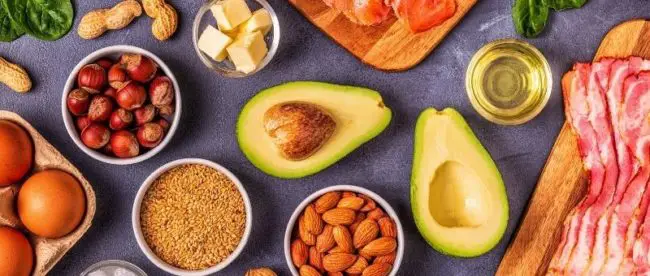
The keto diet is a high-fat, low-carb diet. It was invented in 1920 to treat epilepsy. A lot of research was put into creating this diet that is so successful all around the world. The keto diet is excellent for losing weight – but it also promotes mental clarity and improves heart health.
However, some people don’t like hearing that they need to be eating a lot of fat on the keto diet. After all, we’ve all been told how bad fat is for our bodies.
In this article, I’ll take you through the truth behind fat on the keto diet and what happens if you are not eating enough fat on keto.
Do you have a particular question about eating enough fat on keto? Then use the table of contents below to jump to the most relevant section. And you can always go back by clicking on the arrow in the right bottom corner of the page. Also, please note that some of the links in this article may be affiliate links. For more details, check the Disclosure section at the bottom of the page.
What do healthy fats do to your body?
When people hear the word “fats,” they cringe. They don’t want to eat fats. Fats will make them fat! Well, that’s just not true. There is a difference between healthy fats and unhealthy fats. Let’s take a look at the healthy fats first.
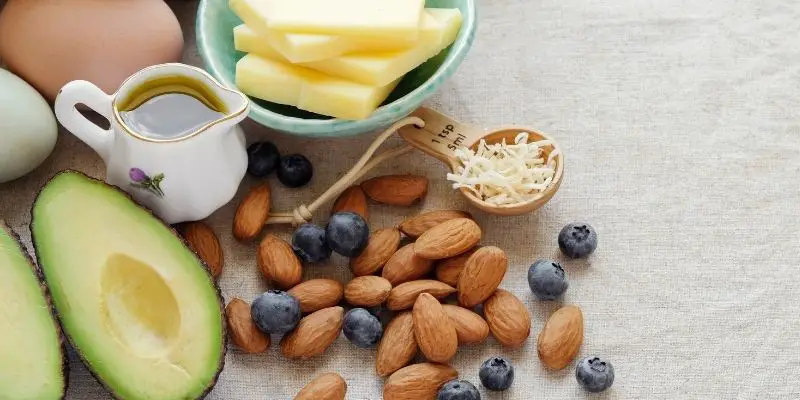
What are healthy fats?
Healthy fats are basically fats that are got from healthy and nutritional food. There are two types of healthy fats: monounsaturated and polyunsaturated fat.
Polyunsaturated fats contain omega-3 and omega-6 fatty acids, which you may have heard of. (They are found in fish.) Other forms of omega-3 are found in vegetable oil and nuts.
Monounsaturated fats are found in foods like olive oil, avocado, and peanut butter.
Make sure you are getting enough fat on keto from these two types of healthy fats.
Benefits of eating healthy fats
- Aids in skin and hair growth
- Boosts bone health
- Regulates metabolism
- Lowers risk of heart disease
- Provides energy
- Protects organs
If you found that you can’t get enough fat on keto, consider incorporating these healthy fats into your diet:
- Olive oil
- Corn oil
- Canola oil
- Safflower oil
- Flaxseed
- Sunflower seeds
- Walnuts
- Avocados
- Peanut butter
- Oily fish like tuna, mackerel, trout, and salmon
What are unhealthy fats?
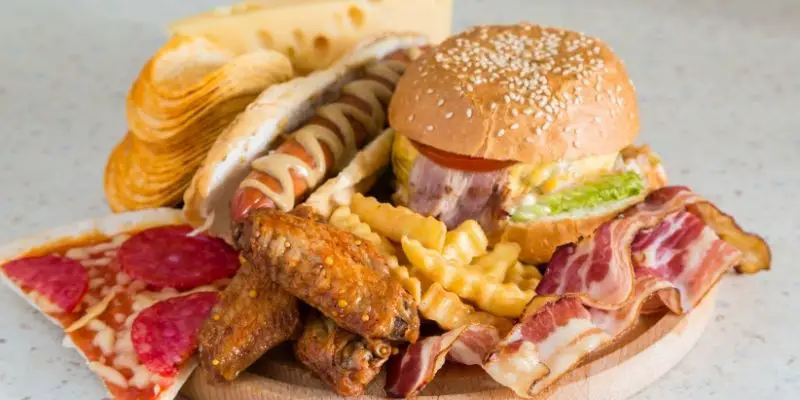
Unhealthy fats are found aplenty in junk food. There are two types of unhealthy fats: saturated fat and trans fat.
Saturated fats are found in high-fat animal meats and dairy products. Saturated fats can be found in cheese, butter, fatty beef and pork, coconut oil, and palm oil. Eat these fats sparingly.
Trans fats can be found in fried foods, baked goods, and processed snacks. It is best to avoid these fats when possible.

How much fat should you eat on keto?
The amount of fat you should eat on keto varies from person to person. In general, the suggested food group values are:
- 70-80% fat from total daily calories
- 5-10% carbohydrate
- 10-20% protein
For a 2000-calorie diet, this translates to about 165 grams fat, 40 grams carbohydrate, and 75 grams protein.
Spend about a week tracking all your calories on an app like MyFitnessPal to see the total amount of calories you usually eat in one day. From here, you can calculate the most accurate values of fat, carbs, and protein that you should be taking for your body.
Remember that everyone’s body is different, and 40g of carbs might kick one person out of ketosis while leaving another person well within ketosis.

How to eat enough fat on keto?
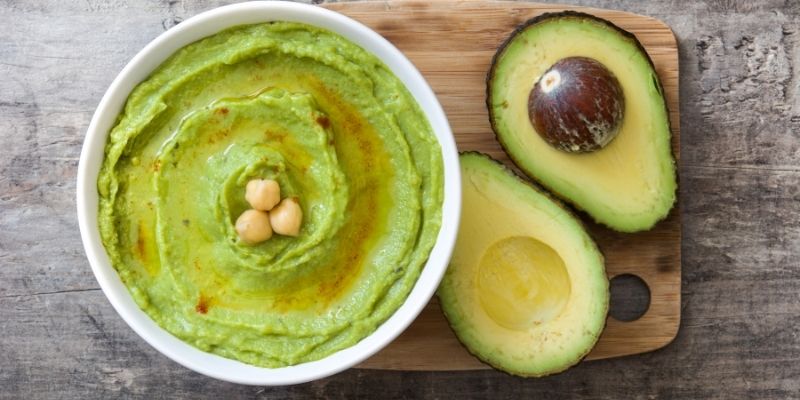
It can be quite a challenge to balance out your fats, carbs, and protein. You don’t want to turn into one of those “lazy keto” dieters – the ones who stay under the carb limit but don’t eat the other food groups properly. Or the people who stay below the carb limit but eat a whole lot of fatty junk food.
Here are some of the best ways to make sure that you eat enough fat on the keto diet:
- Eat avocados for breakfast
- Eat more keto-friendly nuts like walnuts, almonds, and peanuts
- Make fat bombs using peanut butter
- Add butter to your morning coffee
- Incorporate coconut oil into your diet
- Use more MCT oil (it’s also great for boosting ketone production)

Is it bad to not eat enough fat on keto?
Many diets make calories out to be the bad guy. They talk about cutting calories, which can feel depriving. But the truth is that calories are the source of your energy. They power all your body’s activities like breathing, walking, and thinking.
You need calories. 75% of your calories on the ketogenic diet come from fat. If you don’t eat fat, you won’t have a source of energy for daily activity.
But most importantly, you need fats to make you feel full, or else you would be feeling hungry all the time on this diet. That is why it is essential that you are getting enough fat on keto.
So, yes, it is bad to not eat enough fat on keto!

What happens if you don’t eat enough fat?
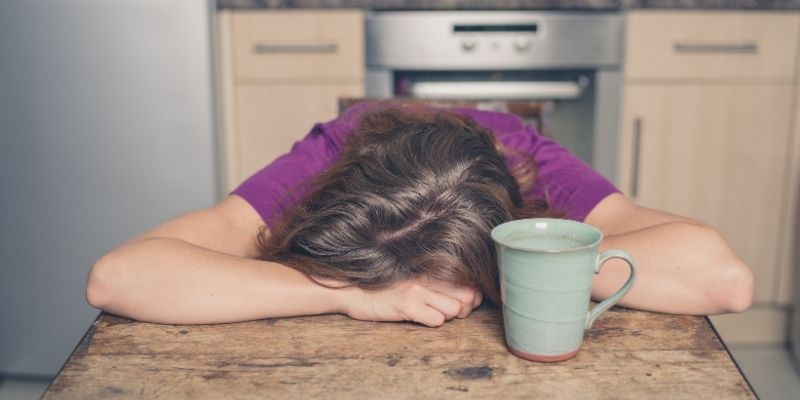
Many people think they can coast on the keto diet. They think they can cut out the carbs from their diet and eat more meat. These “lazy keto” dieters fail to understand that it’s not that simple. You need nutrition from all the food groups.
Remember that the keto diet was created by scientists as a therapy for epilepsy. There was a lot of research put into this diet. It’s a diet that was designed to help people with their health. It’s a healthy diet.
If you don’t eat enough fats, your body will produce less energy, and you will find it very difficult to have an active and productive day. You will feel lethargic and tired all day. That’s the opposite of being healthy. You need a diet to help you feel healthier, not worse.
Thanks for the graphics: Canva.com

Disclosure: At vegketodiet.com I only mention the products that I researched and considered worthy. But it’s important to note that we are a participant of several affiliate programs, including but not limited to VigLink and Amazon Services LLC Associates Program. As an Amazon Associate, this website earns from qualifying purchases. Also please note that I am not a doctor. As such readers are strongly recommended to make decisions that might affect their health by doing their own research. At vegketodiet.com I only document and describe thoughts, researches and ideas that proved to be working for me.

